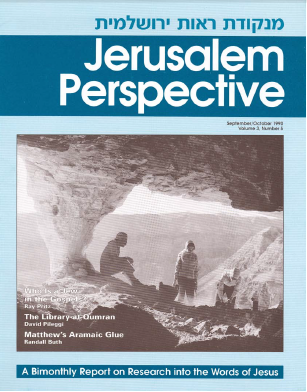I am confused concerning what day I should hold as the Sabbath—Saturday or Sunday? Which day did the first Christians hold?
—K. M. Kramer, Medicine Hat, Alberta, Canada
Ray Pritz Responds:
The Hebrew word שַׁבָּת (sha⋅BAT, “Sabbath”) comes from a root meaning “to rest” or “to cease.” It is first used in the Bible in Genesis 2:2-3, in its verb form, to describe God resting or ceasing from his creative activity on the seventh day. Throughout Hebrew Scripture the seventh day is referred to as the day of rest, but it is never designated as a day for meetings.
By Jesus’ time the synagogue had become an established institution, and we know from the Gospels that Jesus regularly went to synagogue on the Sabbath and was even called upon to participate in the service. Paul also frequently was in the synagogue on the seventh day, “as was his custom” (Acts 17:2). However, no passage proves definitively that either Jesus or Paul attended the synagogue on a weekday, and it seems that daily services had not yet been instituted at that time (see Shmuel Safrai’s “Synagogue and Sabbath,” JP, Nov/Dec 1989).
There is little evidence in the New Testament to support the practice of Christians meeting on Sunday. Paul met with the church at Troas on the first day of the week (Acts 20:7), and we are told that they were gathered together to break bread—which may mean a communion (compare 1 Cor. 10:16; 11:24) —and that Paul preached a long sermon.
There are some things in this story that are not clear. First of all, we are not told here or elsewhere in the New Testament that this was a regular day for meetings. Paul was leaving the next day, and this may simply have been his last opportunity to meet before his departure.
Nor is it entirely clear which day this was. The meeting was at night, and calling it “the first day of the week” could mean, by Jewish reckoning, after sundown on Saturday evening. Or it could be that Luke was going by Roman reckoning, and that the meeting was on Sunday night. The Greek text may give us a clue. Luke uses a very Jewish phrase, “one of the Sabbath.” This could reflect the Hebrew idiom אֶחָד בָּשַּׁבָּת (’e⋅ḤĀD bā⋅sha⋅BĀT), which means “day one of the Sabbath or week.” (“Sabbath” can mean either “Saturday” or “week.”) Luke uses the same phrase when speaking of the women going to the tomb after Jesus had risen (Luke 24:1; see “How Long Was Jesus in the Tomb?” JP, May, 1988).
Other than this, Sunday is rarely mentioned in the New Testament. Paul exhorts the Corinthians to collect a certain amount from their weekly earnings on the first day of the week (1 Cor. 16:2), but there is no mention of a meeting. The only other hint comes in Revelation 1:10, where John says he “was in the spirit on the Lord’s day.” The word he uses, which is unique in the New Testament to describe a day, is κυριακός (kūriakos), from which, by the way, the English word “church” ultimately derives. Post-New Testament Greek literature regularly uses this word to speak of Sunday, but once again its use in the New Testament is no indication of a regular meeting.
We must be careful to maintain a distinction between a day of meeting and a day of rest. Sunday became a day of meeting fairly early in church history (Didache 14), even if it was not one in New Testament times. Already in the early second century Ignatius explained that Sunday should be honored as the day of Jesus’ resurrection and should be a day of rejoicing (Magnesians 9), and Justin Martyr, in the middle of the second century, connected it with the first day of creation—both the creation described in Genesis and the new creation brought about through the resurrection of the Messiah (First Apology §67).
Sunday was not spoken of as a day of rest until three hundred years after the time of Jesus. The first Christians were Jews and undoubtedly rested on the seventh day, Saturday. Because it was the only day when they did not work, it was also the most convenient for meetings. However, these meetings may have been after sundown on Saturday, in other words on the first day of the week.
I feel that, according to the Bible, God expects us to rest one day out of seven. He also expects us to meet together regularly, although a particular day of the week is not specified. My personal view is that, although there is no precedent in Scripture, it is not a bad idea to set aside at least one day a week when we consciously rejoice in the resurrection of Jesus. —Ray Pritz
































































































